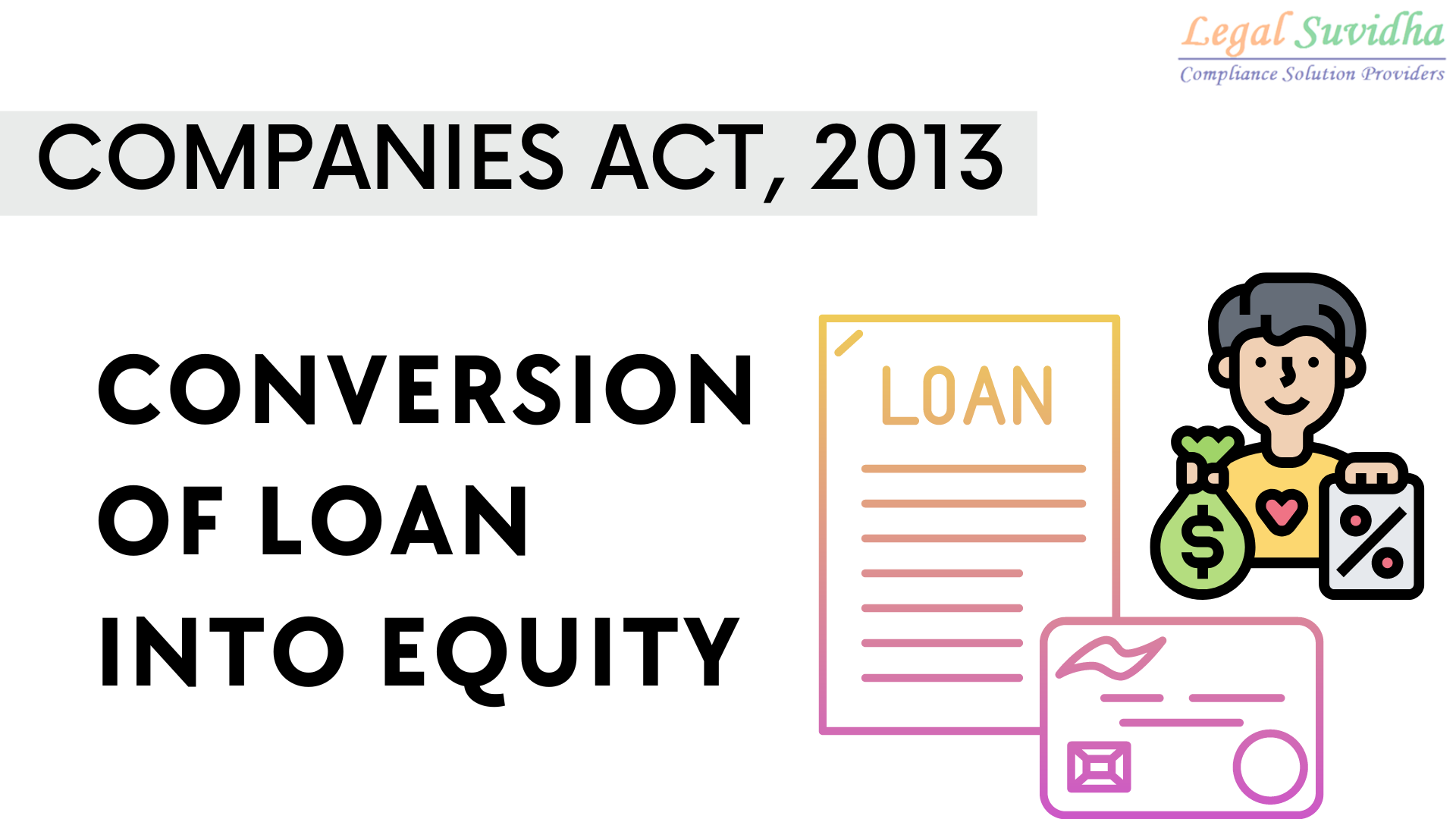CONVERSION OF LOAN INTO EQUITY UNDER COMPANIES ACT, 2013
What is Equity?
Equity is the amount of money that a company’s owner has put into it or owns. On a company’s balance sheet, the difference between its liabilities and assets shows how much equity the company has. The share price or a value set by valuation experts or investors is used to figure out the equity value. This account is also called owners’ equity, stockholders’ equity, or shareholders’ equity
Conversion of loans into equity share capital is the most reliable mode to raise capital without immediate investments. In order to carry out smooth business, at times, debt is converted into share capital. The Companies Act, 2013 has come up with new provisions for the conversion of loans into equity shares and the same are contained in section 62(3) of the said Act.
The new provisions are effective from 1st April 2014. Current article highlight the provisions and procedure for the conversion of loan into equity shares.
BENEFITS OF CONVERSION OF LOAN INTO EQUITY:
No cash exchange occurs in the debt-to-equity swap. Improve a company’s balance sheet by reducing its debts and increasing its shareholder funds.
With a debt-to-equity swap, the lender converts a loan amount or a loan amount represented by outstanding bonds into equity shares, thus converting debt to equity.
No actual cash is exchanged in the debt-to-equity swap. Equity is money that is invested in a company by owners who are called shareholders.
Provided that the terms of issue of such debentures or loan containing such an option have been approved before the issue of such debentures or the raising of loan by a special resolution passed by the company in general meeting. Therefore, for conversion of loan into equity it must be noted that the company accepted has accepted the loan on such terms and condition that such loan will be converted into equity on future. For this purpose, special resolution has been passed at the time of acceptance of such loan.
PROCEDURE FOR CONVERSION OF LOAN INTO EQUITY
Hold a board meeting—a company shall convene a board meeting by giving 7 days prior notice. For the following agenda to be approved-
Resolution for acceptance of loan
Resolution for conversion of loan into Equity.
Issuance of notice for Convening Extra Ordinary General Meeting.
Hold Extra Ordinary General Meeting
After giving 21 clear days’ notice or shorter notice as the case may be, convene an extraordinary general meeting to approve the conversion of the loan into equity.
Filing of e- Form MGT-14 within 30 days of passing of the special resolution. The company shall enter into a loan agreement with a lender where the terms and conditions for conversion of loan into equity are mentioned.
Hold a second board meeting by giving 7 days’ notice for passing a resolution for allotment on the conversion of loan into equity.
Filling of e-Form PAS-3 within 30 days of passing of the resolution.
Documents/Attachments required for the mentioned Forms:
MGT-14
- Notice of Extraordinary general meeting along the explanatory statement.
- A certified true copy of the resolution passed in an Extraordinary general meeting.
- Loan agreement (Optional)
PAS-3
- Board resolution for allotment of equity for conversion of loan into equity.
- List Allottees.







